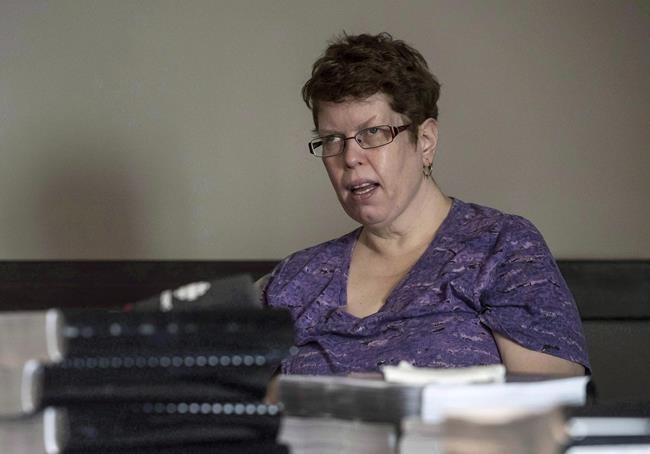HALIFAX — A Nova Scotia advocacy group for people with disabilities says its landmark court victory is an opportunity to compel reforms and funding that will improve their lives after decades of mistreatment.
Claire McNeil, the lawyer for the Disability Rights Coalition, said Friday she will take an Appeal Court ruling declaring systemic discrimination against people with disabilities back to a human rights board of inquiry, and is hopeful a binding set of remedies will result in improved services and housing.
Premier Tim Houston said Thursday his government will not appeal the case to the Supreme Court of Canada, and will attempt to address the lengthy waiting lists for housing, the closing of large institutions, and the practice of moving people far from their families and friends.
Marty Wexler, the coalition's chairman, said the premier's reaction is encouraging, and the group will press him for remedies.
"We want to meet with him and have him take the lead to implement a strategy to close institutions and move people into the community, which is going to require legislation and a budgetary commitment in this mandate," he said in a telephone interview Friday.
However, McNeil says talks with politicians aren't the sole solution, and a legal process will continue to ensure the historic court win has some teeth.
"It's a complaint of systemic discrimination that has taken years to get to this point and so it's a case that requires a legal solution and that will be through the oversight of a new (human rights) board of inquiry the court has ordered appointed," she said in an interview Friday.
The group's court victory on Wednesday came after both the coalition and the province appealed a 2019 human rights board ruling.
That original human rights case was launched by three people with intellectual disabilities who spent years confined in the Emerald Hall psychiatric hospital despite medical opinions they could be housed in the community. The board decision ruled the individual rights of Beth MacLean, Joey Delaney and the late Sheila Livingstone, were violated, but it also ruled against the separate claim by the coalition that the system was discriminating more widely against people with disabilities.
The Appeal Court upheld and extended the findings of individual discrimination against the three, doubling the compensation paid to Delaney from $100,000 to $200,000, while the compensation due to MacLean — who died last month at a local hospital — went from $100,000 to $300,000.
In its ruling on the wider discrimination, the three-judge court summarized evidence given during the human rights hearing, including a historical overview that looked back to a report in 2001 by consultant Michael Kendrick that called upon the province to accelerate its efforts to move people with disabilities to small community homes.
In 2006, a report on the Emerald Hall psychiatric unit where Delaney, Livingstone and MacLean were housed noted shortages of community housing meant the trio were "being confined in a highly restrictive environment without any foreseeable options for community living."
In January 2012, the deputy minister of community services wrote to the Treasury Board to say his department needed a budget increase because the funding was inadequate to address the "minimum needs of people with disabilities."
Finally, a "road map" report that resulted from a committee created by the department called for the phasing out of larger, institutional facilities where over 1,100 people were living in 2013. Successive governments have delayed implementation of the report.
During the human rights hearing, McNeil built on the disturbing details of the life stories of Delaney, Livingstone and MacLean, saying they weren't isolated cases, and that the historic problems — including a freeze on the construction of smaller homes — had led up to their mistreatment.
Her legal team also built a case that the province was treating non-disabled people in need of housing and services differently than those with disabilities, in that they had more choices and weren't denied their basic needs.
The province countered that the history of discrimination was being reversed, that its approach had been rethought, and that small homes and services for people with disabilities were being put in place.
Nonetheless, the three Appeal Court judges said that the current system "can lead to unreasonable and unnecessary institutionalization, as it did for the individual complainants," and it noted the long wait-lists for services are continuing.
As of March 31, 2021, there were 1,691 people with disabilities who were on waiting lists for a change in the housing and services they received from Community Services, and 536 were not receiving any support, according to data the coalition gathered from the government this year.
Kent Roach, a law professor at the University of Toronto, said in an email Friday that the coalition's victory is a nationally important decision for people with disabilities.
Roach, who recently published the book "Remedies for Human Rights Violations," said if talks break down between the province and the coalition, the human rights board "can order broad systemic remedies and retain jurisdiction until the discrimination is ended."
This report by The Canadian Press was first published Oct. 8, 2021.
Michael Tutton, The Canadian Press




